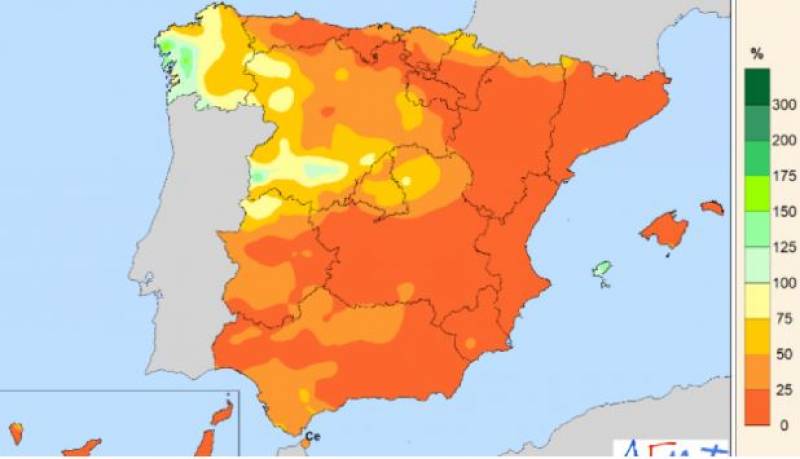article_detail
Date Published: 11/04/2023
ARCHIVED - Spain swelters through the second hottest and driest March of the century
The average temperature in Spain last month was 1.8ºC warmer than previous years

There can be little doubt that summer came early to Spain this year and the latest data from the Ministry for Ecological Transition confirms this, reporting that last month was the second hottest March of the 21st century, and the one with the least rainfall.
Climate change is indeed advancing in giant steps and after the summer of 2022, with its succession of heatwaves and record high temperatures, the environmental situation is becoming increasingly worrying.
The official report concludes that March 2023 was “very warm” in mainland Spain and “extremely warm” in the Canary Islands, with the mercury routinely reaching values more “typical of the month of May.”
Ironically, last month actually began with two record low-temperature days, the thermometers plummeting to a frigid -11.5ºC in Guadalajara. However, the weather rebounded spectacularly after the 7th and had ramped up to 37.7ºC in Tenerife before too long.
The country registered an average temperature of 11.6ºC during the third month of the year, 1.8ºC higher than in previous years, but that’s nothing compared to the Canary Islands, where the mercury soared to 3ºC hotter than normal.
“The trend is for the weather to become more and more extreme,” José Miguel Viñas, an expert meteorologist for Meteored, confirmed.
Along with the heat comes the drought, and this March was also the sixth driest since records began back in 1961. As a result, the country’s reservoirs are in dire straits, having received just 36% of the usual rainfall.
Due to these alarmingly low levels, the Ministry has confirmed that Spain remains in a state of persistent drought which officially began at the end of December 2022.
So, what can we expect this summer?
Given the high temperatures and low rainfall, it’s all too possible that Spain could swelter through another summer like that of 2022, according to the experts. One of the main factors in the El Niño phenomenon, a warming of the waters of the tropical Pacific that affects global temperatures and a climatic event that is becoming increasingly common.
According to Viñas, “this possible El Niño could be strong, which would fit a fairly hot summer with fairly high temperatures and heat waves during the summer.”
This factor added to climate change could lead to a “quite hot” high season.
Looking towards the future, the best predictions suggest that the Earth’s temperature will continue to rise, leading to more intense weather events such as heatwaves, droughts, torrential rains and storms.
The trend, the meteorologist believes, “is for the climate to become increasingly extreme and warm temperature anomalies may dominate.”
Image: Aemet
Loading
See more environmental news about Spain:
OR
Sign up for the Spanish News Today Editors Roundup Weekly Bulletin to get a comprehensive email with all the week’s news for Spain, Murcia, Alicante and Andalucía.
Get a sneak peek – here are a few of our recent Subscription Bulletins:
Discount Special Offer subscription:
36.95€ for 48 Editor’s Weekly News Roundup bulletins!
Please CLICK THE BUTTON to subscribe.
Contact Spanish News Today: Editorial 966 260 896 /
Office 968 018 268






















